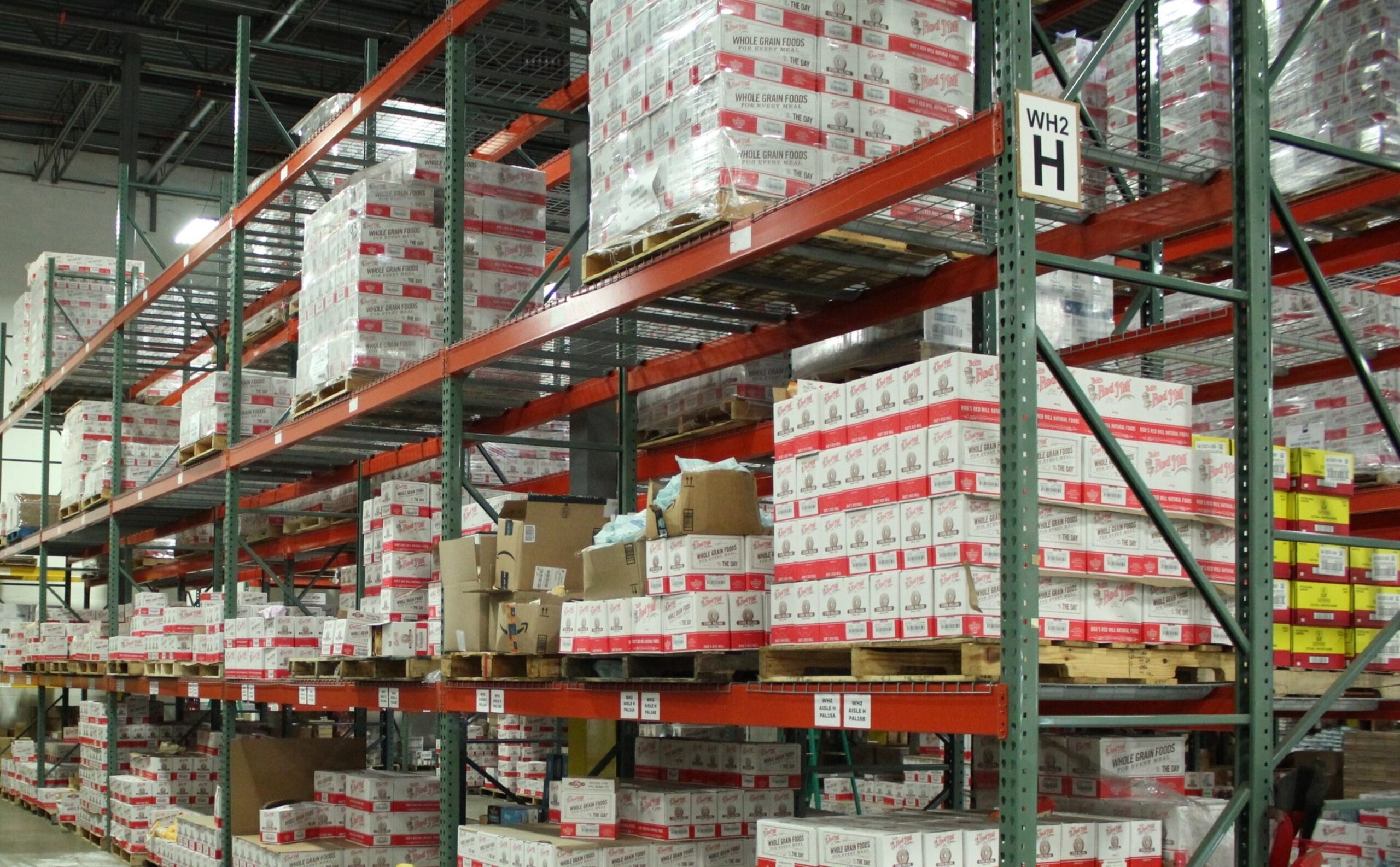Contents

When it comes to business partnerships, your shipping carrier is one of the most important.
With a good shipping carrier, you can rest assured that your products are reaching your customers in a timely fashion and in excellent condition. A bad shipping partner can mean that your customers are dissatisfied when their orders arrive late or damaged.
As you choose the best shipping carrier for your online business, you’ll need to take several factors into consideration, such as where you ship to, how much you ship, and the size and weight of your average shipments. Each shipping carrier has different strengths that you’ll need to weigh against costs. With some analysis, you can choose the best option for your e-commerce business.
What Is a Shipping Carrier?
A shipping carrier is a provider that gets your packages from your business to your customers. With the continued reign of e-commerce, shipping carriers are more important than ever before. Without reliable, affordable, and quality shipping carriers, e-commerce just wouldn’t work.
The major shipping carriers are FedEx, UPS, and USPS, but there are a variety of smaller carriers as well. Sometimes, a smaller carrier may make more sense for your business, but the majority of businesses work with the primary shipping carriers.
Factors to Consider in a Shipping Carrier
There isn’t a one-size-fits-all when it comes to the best shipping carrier for online businesses. Each carrier has pros and cons, and it’s a matter of figuring out which is most beneficial for your needs.
Location
Some carriers have more expansive services in certain areas. Most shipping carriers classify their shipping areas by zones. A higher zone means the shipping location is further away, and this garners higher fees.
The biggest considerations come when you are shipping to rural areas, regionally, or internationally. If you primarily ship to a certain area domestically, it might make the most sense to go with a regional carrier. If you ship internally, you need a carrier that is able to do that at scale.
Ground shipping will almost always be cheaper than air. This might work fine if the majority of your shipments are local. If you’re shipping across the country, air shipping is a must.
Assess where your business ships to most often and choose a carrier with robust operations in that area.
Speed
Shipping speed is one of the most important considerations when it comes to choosing a shipping carrier for your e-commerce business. With so many online businesses offering next-day or two-day delivery, you need to ship quickly to stay competitive. If you are competing against huge retailers like Amazon that offer incredibly fast shipping, you may need to prioritize speed over other priorities even though fast shipping will cost more.
Most shipping carriers break down their services into standard shipping and expeditated shipping. Next-day or overnight shipping tends to be the most expensive option. Two-day shipping may be a good choice for your business since your customers can get their orders quickly and the fees are more reasonable than next-day shipping.
Rates
Cost will be one of the biggest factors (if not the biggest) when it comes to choosing your shipping carrier. If you offer customers free shipping, you need to ensure that your shipping costs don’t eat up your profits.
Many e-commerce sites set a minimum spend for a customer to receive free shipping. This ensures that you’re making enough of a profit on the order to offset the shipping costs.
Compare different shipping carriers to see which service and pricing work for your business. After a few months, it’s a good idea to audit your shipping costs to see if switching to another carrier can save your business money without sacrificing speed or service.
Product Type & Size
The size, weight, and shape of your packages will affect your shipping carrier choice. The lighter and smaller your packages, the more options you’ll have and the cheaper your shipping costs will be.
Some shipping carriers won’t ship items beyond a certain size and weight. If your products are very large, heavy, or oversized, confirm the shipping carrier in question can accommodate your needs. This also applies to toxic or potentially harmful products.
Take the whole scope of your packages into account. Light items may cost more if they require big boxes that take up a lot of room on a shipping carrier truck. It’s a good idea to do some price comparisons between different carriers with your average package dimensions and weight.
If you are shipping internationally, be aware that there are restrictions on certain perishables, cosmetics, and other products. Ask prospective shipping carriers about any limitations to consider.
Tracking
Tracking services are essential for both businesses and customers. All the major shipping carriers offer package tracking, allowing you to see where your packages are in their delivery process.
Most shipping carriers offer tracking API (application programming interface) software, allowing businesses to easily manage and track their shipments. This service is usually free and easy to use.
Insurance
Depending on the value of the items you ship, shipping insurance can be important. Not all carriers provide this (though most do). Confirm the shipping carrier you’re considering offers shipping insurance if this is important for your business.
Reputation
Reliability is one of the most important considerations in choosing the best shipping carrier for your online business. If a particular shipping carrier offers discount rates but can’t deliver reliability, it’s not worth the savings. You’ll end up losing money with dissatisfied customers if their packages arrive late or damaged.
Regional vs. International Carriers
Regional carriers only deliver within a particular domestic region. These smaller carriers may be limited to a particular city, state, or multi-state area. Popular regional shipping carriers include OnTrac, U.S. Cargo, and UnitedDelivery Service.
Sometimes, you can save some money and get more reliable service with a regional carrier if your deliveries are limited geographically. It’s worth investigating to see what you can save.
International shipping carriers offer global shipping services. These carriers must navigate the taxes and customs required when goods enter a foreign country. Most major shipping carriers offer international shipping.
If you will be paying the associated fees, this is known as delivery duty paid (DDP) shipping. If the recipient is paying, it’s known as delivery duty unpaid (DDU) shipping. Most businesses opt for delivery duty paid shipping.
Comparing the Primary Shipping Carriers: UPS, USPS & FedEx
The major shipping carriers offer many of the same services — ground shipping, 2-day shipping, overnight or next-day shipping, tracking services, and insurance options. Price compare between the different carriers to see what the shipping costs would be for your average package.
UPS
UPS is known for shipping heavy, oversized items. If your products fit this description, UPS may be the best choice for your online business. With UPS, you can ship items that are up to 150 pounds.
They also specialize in the shipment of high-value goods, such as antiques, collectibles, and luxury watches. You can insure packages up to $50,000.
UPS offers many different shipping levels and services. You can expect to pay a bit more than you would with USPS.
USPS
USPS (United States Postal Service) can reach every postal address in the U.S. If you ship to remote rural areas, USPS can be a good choice for your business. It is generally known as the least expensive major shipping carrier.
USPS specializes in the delivery of small, lightweight packages that weigh less than 20 pounds. If your products are heavy or oversized, USPS might not be the best shipping carrier for you. They cap package weights at 70 pounds.
FedEx
With a focus on express and overnight shipping, FedEx can get your products to your customers quickly. FedEx offers specialty cold packaging, so it’s often the choice shipping carrier for e-commerce businesses that are shipping perishable items.
FedEx is usually viewed as the most expensive shipping carrier, but they offer many premier services. Many e-commerce businesses choose them for their reliable and tracking capabilities.
How to Know What Shipping Carrier Is Best for Your Business
Like almost every business decision, there are pros and cons to each shipping carrier. List the most important factors for your business. Estimate your costs with each carrier and weigh those against the benefits that are most important to you.
The shipping carrier that is right for your competitor might not be the one that is right for you. Take the time to do some analysis to figure out what makes the most sense for your online business.
References
Delivery Duty Paid (DDP). (March 2022). Investopedia.
Delivered Duty Unpaid (DDU). (May 2021). Investopedia.
How To Pick The Best Shipping Carrier For Your Online Business. (August 2020). Forbes.




